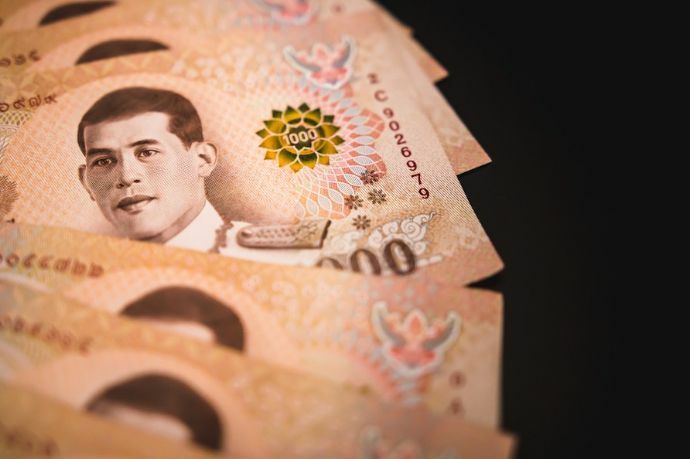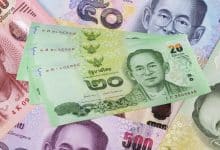Business uncertainty fuels Thai Baht dip amid political unrest and Asian currency devaluation

Embroiled in political and business uncertainty, the Thai baht plummeted to a low unseen since last November, a seven-month dip, agitating investor confidence. This occurred alongside a universal lowering in the value of various emergent Asian currencies versus an emboldened dollar, fuelled by robust US data allaying recession fears.
Stock markets in the region largely painted a bleak picture, with Seoul’s shares taking a pronounced plunge of 0.8%. Philippine and Chinese shares also navigated a loss of 0.3% and 0.5% respectively amid ongoing business uncertainty, Reuters reported.
The baht experienced a devaluation of 0.6%, marking its weakest since November 30 2022, raising questions on the lead candidate’s ability to secure adequate votes to ascend to the prime ministerial position in the forthcoming inaugural session of the new parliament.
Alvin Tan, the chief of Asia FX strategy at RBC Capital Markets, voiced his scepticism on the Move Forward coalition’s capacity to garner the requisite votes to form a new government. Tan further projected an extension of the political deadlock and vagueness in Thailand, if the nation fails to establish a novel government by the next week.
Yesterday saw the Bank of Thailand (BoT) announcing its intentions to further soften foreign exchange regulations in the latter half of the year, a move aimed at promoting capital outflows as the baht remains in a turbulent state. The currency’s value has already seen a reduction of 2.2% this year alone.
In another part of the region, the South Korean won witnessed a 0.3% fall, while the Philippines peso and Singapore dollar registered lesser devaluations of 0.2% and 0.1% respectively.
Meanwhile, US data indicated heightened consumer confidence in June, reaching a peak unseen for approximately one and a half years. This insinuated a stable economy regardless of looming recession threats. “All major data in the US definitely raises bets that there is a possibility of the US Fed hiking interest rates again in July and that they will not be cutting the interest rates quickly this year also,” Tan added.
Attempting to veer against the trend, the Chinese yuan saw a measly uptick of 0.04%, given indications that the central bank has become perturbed by the currency’s recent downturn due to the surrounding business uncertainties.
Latest Thailand News
Follow The Thaiger on Google News:


























